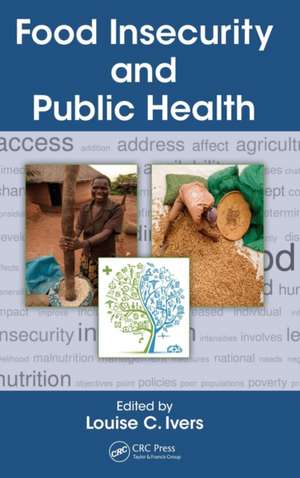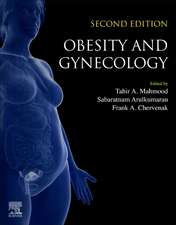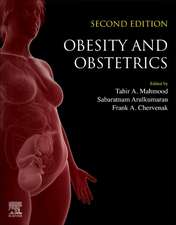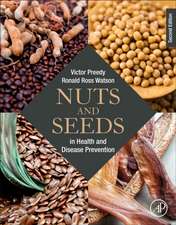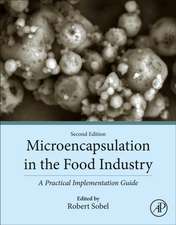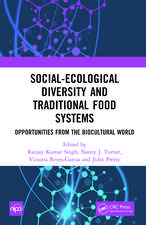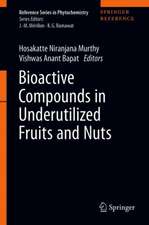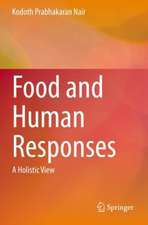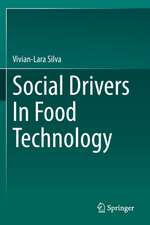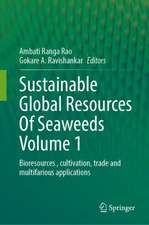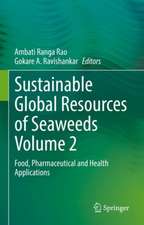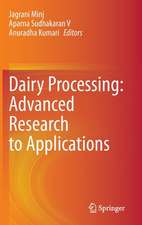Food Insecurity and Public Health
Editat de Louise Iversen Limba Engleză Hardback – 6 mai 2015
The book guides you through the fundamentals, beginning with theory, and the challenges in measuring it, and moving on to the impact of food insecurity on health. The book details the implications of food insecurity on public health practice, including epidemiology and outcomes of diseases such as HIV, TB, and non-communicable diseases, and the specific impact on women’s health. It closes with case studies from the Navajo Nation, Kenya, and Southern Africa, offering the opportunity to learn from real-life successes and challenges.
Each chapter also considers programs or interventions that have been used to attempt to address the issue, including a discussion of the US federal food stamps program. In truth, however, there continues to be a dearth of data on the ways in which programs can effectively address the problem of food insecurity at the household, community, or district level in either the short or long term—beyond, of course, the elimination of poverty, which is no doubt a root cause of the problem. The book gives you context for considering the links between food insecurity and health, and a framework for seeking integrated solutions to both problems.
| Toate formatele și edițiile | Preț | Express |
|---|---|---|
| Paperback (1) | 431.35 lei 6-8 săpt. | |
| CRC Press – 30 iun 2021 | 431.35 lei 6-8 săpt. | |
| Hardback (1) | 1272.54 lei 6-8 săpt. | |
| CRC Press – 6 mai 2015 | 1272.54 lei 6-8 săpt. |
Preț: 1272.54 lei
Preț vechi: 1551.88 lei
-18% Nou
Puncte Express: 1909
Preț estimativ în valută:
243.50€ • 254.75$ • 202.28£
243.50€ • 254.75$ • 202.28£
Carte tipărită la comandă
Livrare economică 02-16 aprilie
Preluare comenzi: 021 569.72.76
Specificații
ISBN-13: 9781466599055
ISBN-10: 1466599057
Pagini: 232
Ilustrații: 25 black & white illustrations, 13 black & white tables
Dimensiuni: 156 x 234 x 18 mm
Greutate: 0.45 kg
Ediția:1
Editura: CRC Press
Colecția CRC Press
ISBN-10: 1466599057
Pagini: 232
Ilustrații: 25 black & white illustrations, 13 black & white tables
Dimensiuni: 156 x 234 x 18 mm
Greutate: 0.45 kg
Ediția:1
Editura: CRC Press
Colecția CRC Press
Public țintă
Academic and Professional ReferenceCuprins
Food Security and Program Integration: An Overview. Food Insecurity and Health: A Conceptual Framework. Food Insecurity Measurement. Nutrition, Food Security, Social Protection, and Health Systems Strengthening for Ending AIDS. Food Insecurity and Tuberculosis. Food Insecurity and Non-Communicable Diseases among the Poorest. Food Insecurity: Special Considerations for Women's Health. Understanding Food Insecurity in Navajo Nation through the Community Lens. Overview of the Cost of Hunger in Africa—Executive Summary: Social and Economic Impact of Child Undernutrition in Egypt, Ethiopia, Swaziland, and Uganda. Integrating Nutrition Support for Food-Insecure Patients and Their Dependents into an HIV Care and Treatment Program in Western Kenya.
Notă biografică
Dr. Louise C. Ivers, MB, BCh, BAO, MPH, DTM&H is a medical doctor, and senior health and policy advisor for Partners In Health (PIH), an international nonprofit organization that provides direct health care and social services to poor communities around the world. She is trained in infectious diseases, tropical medicine, and public health and is also associate professor of global health and social medicine, and associate professor of medicine at Harvard Medical School in Boston. Dr. Ivers has spent her medical career to date implementing health programs and working to improve the delivery of health care in resource-poor settings through service and research. In addition to implementing primary health care, HIV, TB, and cholera programs, she has significant experience in coordination and implementation of disaster relief efforts.
Based in Haiti from 2003 to 2012, she led the Partners In Health responses to hurricane-related flooding in 2008, a major earthquake in 2010, and an ongoing cholera epidemic in Haiti. Dr. Ivers has contributed to published articles on HIV/AIDS, food insecurity, post-disaster humanitarian response, and cholera treatment and prevention. She has served as a technical advisor to the World Health Organization and mentors Haitian and American physicians. She was previously clinical director and chief of mission for Partners In Health in Haiti. Through her decade of experience in Haiti, she gained programmatic and academic insights into the impact of food insecurity on health, and leads NIH-funded research on the topic.
Based in Haiti from 2003 to 2012, she led the Partners In Health responses to hurricane-related flooding in 2008, a major earthquake in 2010, and an ongoing cholera epidemic in Haiti. Dr. Ivers has contributed to published articles on HIV/AIDS, food insecurity, post-disaster humanitarian response, and cholera treatment and prevention. She has served as a technical advisor to the World Health Organization and mentors Haitian and American physicians. She was previously clinical director and chief of mission for Partners In Health in Haiti. Through her decade of experience in Haiti, she gained programmatic and academic insights into the impact of food insecurity on health, and leads NIH-funded research on the topic.
Recenzii
"This well-organized, comprehensive, readable collection analyzes the reciprocal relationship between food insecurity and negative health outcomes. The volume covers both communicable diseases, such as tuberculosis and AIDS, and non-communicable diseases (NCDs), e.g., diabetes and heart disease, in developed and developing countries. The first three essays do an excellent job of defining critical terms, establishing a theoretical framework for examining the bidirectional relationship between food insecurity and health, and identifying a system of metrics to quantify the various components of that relationship. The next four essays discuss the relationship of food insecurity to particular diseases, considering specific programs—food stamps in the US, programs for women, infants, and children—aimed at addressing these health issues. The final three chapters present case studies, one revealing the cost of hunger to education and productivity in Africa, another on a HIV treatment program in Kenya, and another revealing the rise of diabetes and other NCDs in the Navajo Nation as a result of the US government’s longtime disruption of traditional Navaho foodways. The disproportionate burden of food insecurity on women is a consistent theme, as is the need to address public health and food insecurity through an integrated approach that takes into account historical, social, cultural, and economic factors as well as medical and nutritional concerns."
—D. M. Gilbert, Maine Maritime Academy (formerly), in CHOICE
—D. M. Gilbert, Maine Maritime Academy (formerly), in CHOICE
Descriere
This book provides an evidence-based discussion of the impacts of food insecurity on public health as well as interventions to mitigate these issues. In addition, it reviews the conceptual framework behind interactions of food insecurity and health. Chapters cover food security and food sovereignty, measuring food security, food insecurity as it relates to health and nutrition, and gender issues.
